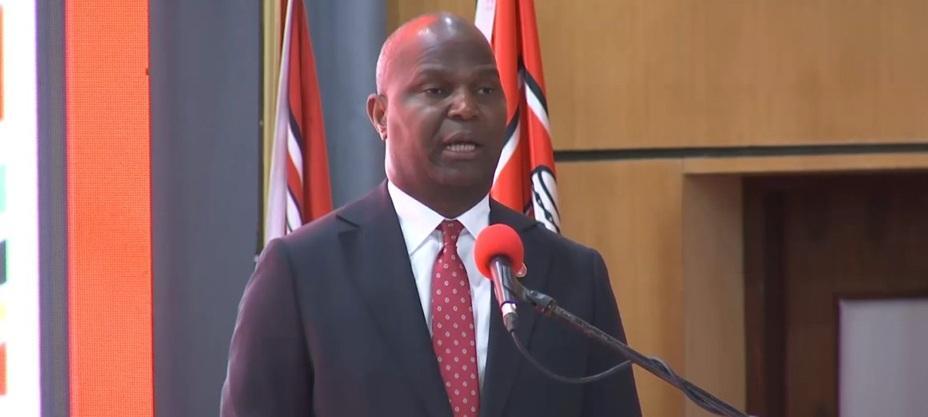Africa-Press – Mozambique. Mozambican President Daniel Chapo on Thursday declared that Mozambicans “are forbidden from failing” in their attempt to secure an “inclusive national dialogue”.
Speaking at the opening of a symposium marking the 50th anniversary of Mozambican independence and the 63rd anniversary of the foundation of the Mozambique Liberation Front (Frelimo), Chapo stressed the need for a lasting peace, for dialogue, for the fight against violence, and for strengthening national unity in order to attract more investment and create jobs for young Mozambicans.
He added that “inclusive national political dialogue” needs to be nourished with the experiences of success accumulated by Mozambique and other countries.
“As Mozambicans, we are forbidden from failing”, Chapo said. “We must create an environment of complete and lasting peace so that Mozambique is no longer seen as a country of recurrent conflicts”.
Speaking in his capacity as President of Frelimo, Chapo cited Frelimo’s founder, Eduardo Mondlane, generally regarded as the architect of national unity, who had stressed “there is no antagonism between national unity and the existence of many ethnic groups”.
This vision, he said, “made the Mozambique Liberation Front an organisation that drew together the wills of millions of Mozambicans, from the Rovuma to the Maputo (the rivers marking the country’s northern and southern boundaries) regardless of tribe, region, race or other forms of differentiation”.
He added that Frelimo, thanks to its coherence and commitment to the vision of Eduardo Mondlane, became an organisation of the Mozambican people during the 63 years since its foundation.
Chapo said that for centuries Mozambicans had fought against colonial rule, but were not successful because they had no vision of national unity, which proved to be the main weapon for victory. For that reason, national unity remained the standard of Frelimo in its vision of building a fairer and more democratic and prosperous Mozambican society.
One of Chapo’s predecessors, Joaquim Chissano (who was president from 1986 until 2005) told the symposium “today we are facing poverty, corruption, social exclusion, ignorance and violent extremism. These are the new forms of oppression that undermine the exercise of our freedom”.
As gains from the country’s independence, Chissano pointed to the education and health systems, and the value given to Mozambican culture, despite the 16-year war of destabilisation waged against Mozambique by the now defunct South African apartheid regime.
“Despite destabilisation, recurrent natural disasters and outside pressure, Mozambique has remained firm to its founding principles”, Chissano claimed.
Today, after 50 years of independence, “we have democratic institutions, a free press and freedom of expression, social and economic advances and an increasingly creative and aware youth, who are determined to build the economic independence of our country”, declared Chissano.
He urged young Mozambicans, faced with the new challenges, to play “a decisive role” in the development of the country. They have the responsibility “to build a nation free of poverty and ignorance, and living at peace with itself”.
video
video
video
video
video
video
For More News And Analysis About Mozambique Follow Africa-Press






